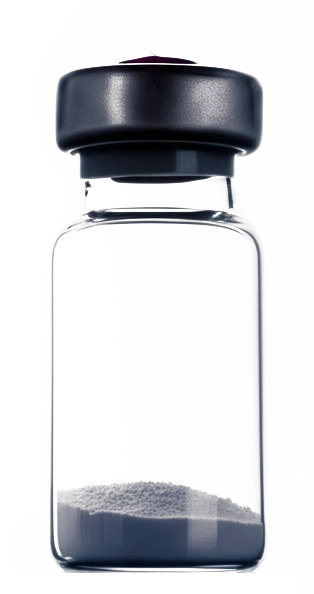
Performance-enhancing peptides are compounds designed to improve various aspects of physical capability, ranging from strength and endurance to muscle recovery and fat loss. These peptides work by stimulating specific physiological processes in the body, such as increasing the production of growth hormone, boosting red blood cell count, or enhancing muscle protein synthesis. As a result, athletes may experience improved stamina, faster recovery times, and increased muscle mass. The effectiveness and safety of these peptides can vary widely, making it crucial to understand their mechanisms and potential risks.
Athletic performance peptides differ from other performance-enhancing substances, like anabolic steroids, primarily in their specificity and mechanism of action. Anabolic steroids often have broader effects and can lead to significant side effects due to their impact on multiple systems in the body. In contrast, peptides typically target specific receptors or pathways, offering more targeted benefits with potentially fewer side effects. For example, muscle growth peptides specifically stimulate muscle protein synthesis, while peptides for endurance can enhance oxygen delivery to muscles. However, it is important to note that like any performance enhancer, peptides come with their own set of risks and ethical considerations.
The primary benefits of using peptides for sports performance include enhanced muscle growth, improved recovery, increased endurance, and fat loss. Muscle growth peptides, for instance, can stimulate the production of proteins necessary for muscle repair and growth, leading to increased strength and muscle mass. Recovery peptides aid in reducing inflammation and muscle soreness post-exercise, allowing athletes to train more frequently and intensely. Peptides for stamina can boost red blood cell production, enhancing oxygen delivery to muscles and improving endurance. Additionally, fat-burning peptides can assist in weight management by increasing metabolism and promoting the breakdown of fat stores. These benefits collectively contribute to improved athletic performance and overall fitness.

Muscle growth peptides stimulate muscle protein synthesis through various mechanisms, often by mimicking or enhancing the effects of naturally occurring growth factors. For example, some muscle growth peptides bind to specific receptors on muscle cells, triggering intracellular signaling pathways that promote the translation of mRNA into new muscle proteins. This process increases the rate at which muscles repair and grow, leading to hypertrophy. Additionally, certain peptides can stimulate the release of growth hormone, which further supports muscle growth and repair. The precise mechanisms can vary depending on the specific peptide, but the overall goal is to accelerate muscle protein synthesis and enhance muscle development.
Recovery peptides play a crucial role in reducing post-workout inflammation by modulating the bodys inflammatory response. Intense exercise can cause muscle damage and inflammation, leading to soreness and delayed recovery. Recovery peptides can help mitigate these effects by promoting the release of anti-inflammatory cytokines and reducing the production of pro-inflammatory molecules. Some peptides also enhance blood flow to damaged tissues, facilitating the removal of waste products and the delivery of nutrients needed for repair. By reducing inflammation and promoting tissue repair, recovery peptides can significantly shorten recovery times and allow athletes to return to training sooner.
Yes, post-workout recovery peptides can indeed improve muscle repair. These peptides are designed to accelerate the healing process by targeting specific aspects of muscle recovery. For example, certain peptides stimulate the production of growth factors that promote tissue regeneration, while others enhance the delivery of oxygen and nutrients to damaged muscle fibers. Additionally, some recovery peptides possess antioxidant properties, which help to neutralize free radicals produced during exercise and reduce oxidative stress. By addressing multiple facets of muscle repair, these peptides can significantly enhance the recovery process, leading to faster healing and improved muscle function.



Peptides for endurance enhance an athletes stamina primarily by improving oxygen delivery to the muscles. Some peptides stimulate the production of erythropoietin (EPO), a hormone that increases red blood cell production. With more red blood cells, the blood can carry more oxygen, allowing muscles to work harder and for longer periods before fatigue sets in. Additionally, certain peptides can enhance mitochondrial function, improving the efficiency with which muscles use oxygen to produce energy. By boosting oxygen supply and utilization, these peptides can significantly improve an athletes endurance and overall performance.
When using fat-burning peptides for weight management, several key considerations must be taken into account. First, it is important to understand that these peptides are most effective when combined with a balanced diet and regular exercise. They are not a magic bullet for weight loss but rather a tool to support a comprehensive weight management strategy. Second, it is crucial to choose peptides from reputable sources to ensure purity and potency. Third, users should be aware of potential side effects and start with low doses to assess tolerance. Finally, consulting with a healthcare professional is advisable to ensure that the use of fat-burning peptides is safe and appropriate for individual health conditions.
HGH peptides for performance contribute to lean muscle development by stimulating the release of human growth hormone (HGH). HGH plays a critical role in muscle growth, fat metabolism, and overall body composition. By increasing HGH levels, these peptides promote the synthesis of new muscle proteins, leading to increased muscle mass and strength. Additionally, HGH helps to mobilize fat stores, making them available for energy, which can result in a leaner physique. The combination of increased muscle growth and fat loss makes HGH peptides a valuable tool for athletes seeking to improve their body composition and athletic performance.
Here are some common questions about performance-enhancing peptides, along with brief answers:
Performance-enhancing peptides are compounds that improve physical capabilities by stimulating processes like growth hormone production and muscle protein synthesis, leading to enhanced stamina and faster recovery.
Unlike anabolic steroids, athletic performance peptides target specific pathways, offering more targeted benefits with potentially fewer side effects, though risks still exist.
The main benefits include enhanced muscle growth, improved recovery, increased endurance, and fat loss, contributing to better athletic performance.
Muscle growth peptides stimulate muscle protein synthesis by mimicking growth factors, triggering pathways that increase muscle repair and growth.
Recovery peptides reduce post-workout inflammation by releasing anti-inflammatory cytokines and enhancing blood flow to damaged tissues, speeding up recovery.
Yes, post-workout recovery peptides improve muscle repair by stimulating growth factors, enhancing oxygen delivery, and neutralizing free radicals.
Peptides for endurance improve stamina by boosting red blood cell production and enhancing mitochondrial function, increasing oxygen delivery to muscles.
Key considerations include combining peptides with diet and exercise, ensuring purity, monitoring side effects, and consulting a healthcare professional.
HGH peptides for performance stimulate the release of human growth hormone, promoting muscle protein synthesis and fat metabolism, leading to lean muscle development.

